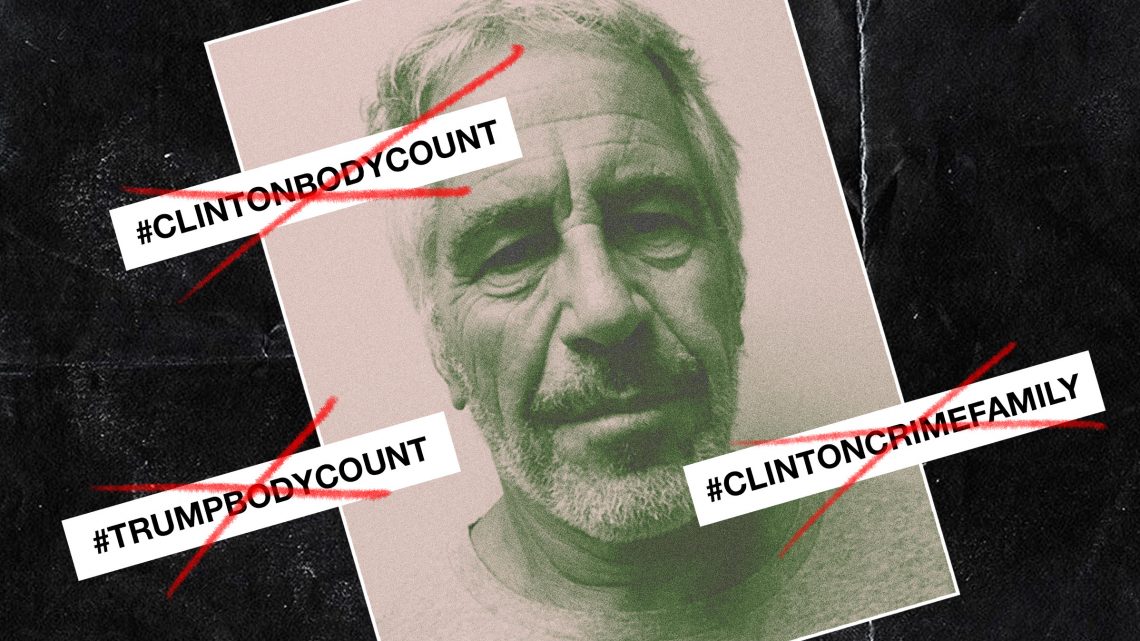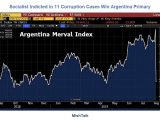
The Actual Facts Behind Jeffrey Epstein’s Death Are Worse Than the Conspiracy Theories
August 12, 2019Even before Jeffrey Epstein was arrested on new sex trafficking charges last month, he had become a symbol of a system that wasn't just broken, but in a state of surreal dysfunction. The shadowy financier's story has long been described essentially as Pizzagate But True, an amalgamation of everything suspected of depraved, decadent, corrupt elites at a time of massive distrust in government. So it was no surprise when conspiracy theorists went wild over the weekend with news of his death by apparent suicide in a Manhattan jail. The man implicated in a horrific sex trafficking scheme allegedly involving dozens or even hundreds of young girls—and with ties to at least one member of the British royal family, presidents past and present, and plenty of other rich and powerful people—had finally faced some prospect of justice following his arrest. Now he (and those in his circle, the thinking seemed to go) had once again evaded scrutiny.
Once Epstein was reportedly found unresponsive in his cell early Saturday morning, it didn't take long for President Trump himself to retweet a conspiracy suggesting the Clintons (Bill Clinton knew Epstein) had silenced him. Meanwhile, survivors of Epstein's alleged crimes were said to be re-traumatized, denied the opportunity to see him tried even as they held out hope for the prosecution of his alleged enablers and civil suits were poised to launch against his estate.
But the factors that helped make this nightmare possible are actually fairly well established, so far as they can be at this early stage (an initial autopsy has been conducted and its results pending). In other words, this whole saga doesn't have to be as confusing or fantastic as Weekend Twitter might have you believe. There are even potential solutions floating around to some of the systemic problems that enabled Epstein and others like him, as well as his demise.
So before you give up entirely and succumb to taking a deep dive into Epstein conspiracies—or if you have already taken the plunge and are gasping for air—take solace: No matter how he died, there were actual, malleable policies that played a part in his rise, his crimes, and his death.
Broken Jails
Suicide in American jails is disturbingly common. So if that is in fact how Epstein died—the New York Times described the medical examiner as "confident" that was the case, citing a city official—it would be consistent with long, brutal tradition of despair and neglect behind bars. As Andrew Cohen pointed out for the New Republic over the weekend, suicide is the leading cause of inmate deaths in America, and if anything the trend-lines are heading in the wrong direction; that is, officials have been increasingly unable to prevent inmate self-harm. And as Catherine Linaweaver, who previously served as warden at the same federal detention facility where Epstein died and had been taken off suicide watch, told the Associated Press, "If someone really wants to commit suicide [in jail], they're going to do it."
There's also the fact that the federal Bureau of Prisons (BOP) in particular is wildly understaffed—a problem that has been established for years, long before Epstein became a fresh target for conspiracy theorists. Washington Post columnist Joe Davidson wrote up an internal DOJ watchdog report back in 2017, bemoaning "understaffed mental health services for particularly vulnerable inmates." One Times headline last year aptly summarized the dire state of affairs: Safety Concerns Grow as Inmates Are Guarded by Teachers and Secretaries, citing the Trump administration's insistence on trimming the federal workforce as part of the problem. One byproduct of this is more workers doing overtime, whether mandatory or otherwise, and according to the AP, that's exactly what happened in Epstein's case: guards on duty had been putting in "extreme" overtime and may have failed to check on him every 30 minutes, as required under Epstein's post-suicide watch status, as a result.
A Corrupt Legal System
No one needed a case like Jeffrey Epstein's to know the criminal justice system outside jails and prisons was a mess in America, too, but his story has been deeply clarifying on that front as well. After all, it was, of course, the now-notorious non-prosecution agreement fashioned by former US Attorney Alexander Acosta that helped Epstein formalize an absurd plea deal in 2008, routinely leaving a cushy local lock-up for 12 hours at a time to work out of an office. That a rich person would finagle a "sweetheart" deal (as this one is often called) is an old trope of American life. That Epstein managed to do so in the face of what appeared to be overwhelming evidence gathered by both local police and the FBI was next-level.
Then again, prosecutors moving between the government and fancy white-shoe firms to represent dubious clients is routine in the United States. That trend was illustrated by some of the key players at the center of Robert Mueller's Russia investigation, which ended with Attorney General William Barr basically telling everyone to move on. And the legal superstars—like former former Whitewater special prosecutor Kenneth Starr and former federal prosecutor Guy Lewis—Epstein wrangled to help him a decade ago had their own experience inside or adjacent to the Justice Department. To some extent, experts said, in a country that just saw the Mueller investigation end with a whimper and features people of color withstanding more discrimination than ever in Ferguson, Missouri, after a federal probe there, it was only sensible to at least flirt with a conspiracy theory or two.
"It's reasonable to be skeptical of this Justice Department," said Kathleen Clark, a law professor at Washington University in St. Louis. But, she, added: "Being skeptical about the Justice Department doesn't mean we should latch onto conspiracy theories but instead, we should look at facts and what evidence we actually have."
Sure, it's theoretically possible that Epstein was some kind of intelligence asset or blackmailed a bunch of key legal and other officials to win his initial generous deal, or that someone who feared he had dirt on them took him out this weekend. But the far more likely explanation is that he preyed on a system that has too few public defenders for people of modest means but plenty of loopholes for wealthy people who have friends with the right contacts. In fact, a Wall Street Journal report late Sunday suggested it was Epstein's most recent team of well-paid attorneys who had helped win his admittedly bizarre release from suicide watch before his death.
An Ocean of Dark Money
Perhaps the most enraging thing about the Epstein saga besides the alleged offenses themselves is that the man implicated was so rich for so long despite no one really knowing how or why. A bevy of outlets well-sourced in the financial world have come up only with small tidbits that might help explain the precise source of Epstein's wealth besides that he long enjoyed the favor of Leslie Wexner, the man behind L Brands, the public company that includes Victoria's Secret. What we do know is Epstein worked for a time on Wall Street before becoming a mythical player in the world of wealth management, allegedly refusing clients with fewer than a billion in assets but only counting Wexner—who has since disavowed him and denied knowledge of his crimes—and a few others as bona fide patrons.
We also know that, as the Times reported, Epstein's funds flowed through offshore accounts and dubious charity vehicles, the exact kinds of financial instruments that have come under intense scrutiny in the age of the Panama and Paradise Papers and a president who cheats on his taxes. Epstein's transactions had also been flagged by staffers at two banks—Deutsche Bank and JP Morgan Chase—according to the paper, only for managers to overrule them and insist on continuing to do business with a rich man who meant profit, at least for a long time.
Perhaps more than any other problem—from understaffed federal facilities to a legal system in which only a fraction of sexual violence allegations are prosecuted and conflicts of interest are rife—this is something experts believe could actually be fixed, or at least improved.
"There's this huge part of the financial sector that we just don't know what's going on," Brad Miller, a former Democratic congressman from North Carolina who worked on financial regulation after the 2008 crash, said in an interview about Epstein before his death. "There are ten or 15,000 hedge funds [for example]. And every one of them is managed by someone who thinks they should be a billionaire. That's a formula for misconduct."
"We have an entire economy built on secrecy," agreed Jeff Hauser, executive director of the anti-corruption Revolving Door Project at the left-leaning Center for Economic and Policy Research. He added, "Deutsche Bank only very recently ditched [him], because no one knew Deutsche Bank was doing business with him."
There is certainly plenty of reason to be angry right now. Attorney General Barr apparently was when he decried the "serious irregularities" that seemed crucial in Epstein's death on Monday. Heads may roll, so to speak, inside the BOP, and it is not beyond the realm of possibility that Epstein did in fact use his wealth to win special treatment, whether from inmates or guards, prior to his death.
Then again, accountants and lawyers close to Epstein were said to be hiring their own criminal defense lawyers, raising the hope that the wider, systemic failure here might be exposed. It's also never too late to impose more safeguards on the financial system, like requiring fancy investment products to be more transparent about their accounting and transfers of money. In the meantime, rich people buying special treatment from a government that fails to provide basic services at every level and ultimately eluding justice doesn't require a conspiracy theory to be borne out. It's just how things tend to work.
And in the context of a federal prison system where he might have been treated like a "chomo"—or child molester—rather than inmate with friends in high places, Epstein's back was against the wall.
"It's tragic and horrifying and terrible for his victims," said Noah Feldman, the Harvard legal historian, "and it doesn't require a conspiracy to explain why it would have happened."
Sign up for our newsletter to get the best of VICE delivered to your inbox daily.
Follow Matt Taylor on Twitter.


